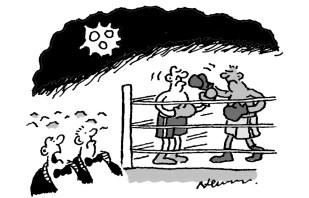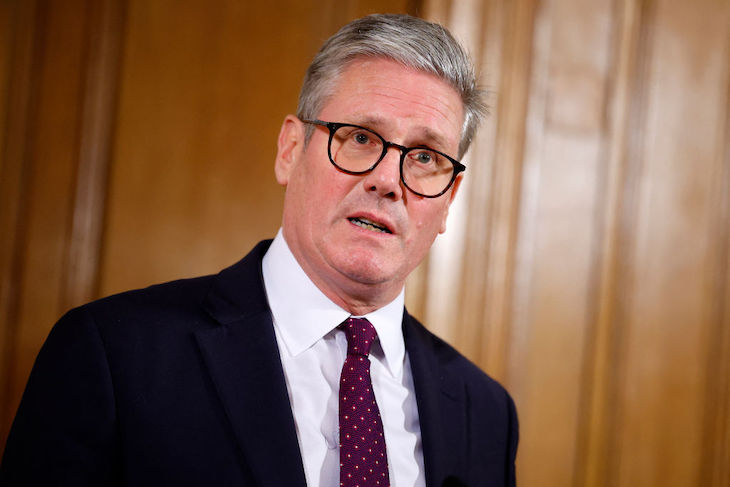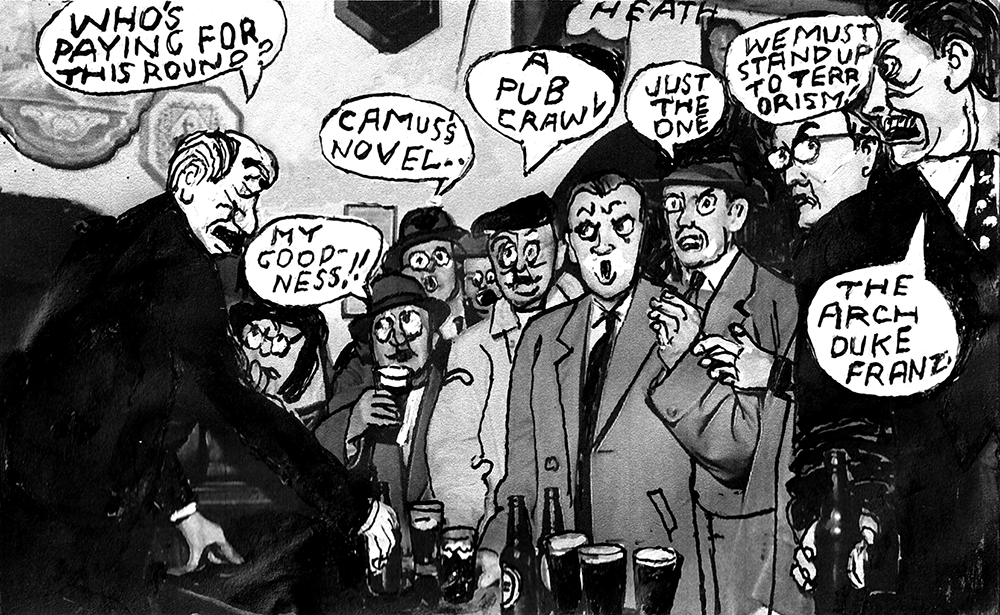By rights, the Conservative party conference in Birmingham ought to have been a funereal affair. It was the first time the party had gathered after its worst-ever election defeat and the number of former MPs rivalled the number of current ones. And yet the mood was surprisingly upbeat. ‘Opposition is so freeing,’ said one MP at the bar in the early hours. ‘It’s like being drunk at the wake after the funeral,’ remarked one Tory strategist.
It’s not that the party conference revealed a breakout star in the leadership contest (‘We’ll be doing this again in two years,’ predicts one unimpressed MP). Instead, Tories are looking at Labour’s misfortunes. Three months ago, they expected to be out of power for at least ten years; now they think the Keir Starmer project is imploding upon launch. This partly explains why there were so many former Tory MPs at conference – some expect that there will be lots of winnable by-elections over the next few years and are already preening themselves.
The Tories recognise the signs of political death, and they believe it’s already started to hang over Labour
The new Prime Minister has not yet reached 100 days, but his problems are piling up. He’s had to face a revolt from the left over his cut to the winter fuel payment, Rosie Duffield quitting the party over his ‘staggering hypocrisy’ regarding freebies and reports of infighting in Downing Street between his chief of staff Sue Gray and senior Labour figures. As the former MP Penny Mordaunt put it in Birmingham: ‘In a mere 12 weeks he has brought doubt to our economy, fear to our elderly, a touch of the Imelda Marcos to the office of prime minister and sausage memes to our timelines.’
Voters do not seem particularly impressed. Starmer’s approval ratings have plunged at a speed that would have alarmed Liz Truss. A poll this week found voters are now more likely to say they preferred the previous government led by Rishi Sunak to the current one led by Starmer. While the Downing Street and Treasury line is that it’s good to make tough decisions early on, others in government are starting to worry that unpopularity cannot be shrugged off as a strategic decision.
The Tories look at all this with a feeling of familiarity. Over the past few years, there has been plenty of psychodrama in government. They know how the story usually ends. Aides who become the news story, as Gray has done, tend not to last very long – look at Dominic Cummings under Boris Johnson or Nick Timothy and Fiona Hill under Theresa May. All were booted out of Downing Street long before their bosses were. The Tories recognise the signs of political death, and they believe it has already started to hang over Labour benches.
They also know dysfunction in No. 10 is contagious across Whitehall, which is a growing concern of ministers and aides. ‘No one thinks it is working,’ says a Labour figure of the set-up of Starmer’s team. ‘There is a total lack of direction.’ Before the election there were reports of a rift between Gray and Starmer’s lead strategist Morgan McSweeney, but now the problems are believed to be more widespread.
Hostile briefings about Gray, including the unauthorised disclosure that she earns more money than Starmer, make it harder for her to operate effectively. She was notably absent from Labour conference (officially she was focusing on preparations for the UN summit). There are repeated rumours she could eventually end up being shuffled off into the Lords, but the general line is Starmer will stick by her even if some in the party think the situation is unsustainable. ‘Sue does need to go,’ says a government aide.
While Gray has got on the wrong side of many special advisers – many of whom are in an ongoing dispute over their proposed pay – she still has supporters. The Greater Manchester mayor Andy Burnham attempted to organise a letter signed by various metro mayors asking Starmer to get behind her and put an end to the hostile briefings. But few of his fellow mayors were interested. ‘I didn’t think it was our business – it would mean taking sides,’ says one.
The idea was that Gray would be in charge of the running of government and McSweeney would lead the political direction. Now the concern is that the operation is not sufficiently joined up and that there is very little clear political direction. ‘There is no narrative,’ complains a party figure. ‘It’s all quite disjointed.’ There are already calls for more staff to join the building.
A key appointment will be cabinet secretary, the head of the civil service. Simon Case confirmed this week that he will leave by the end of the year after treatment for a ‘neurological condition’. This offers Starmer a chance to look again at his set-up. Some in Labour have accused Case’s allies of being behind recent negative briefings.
A new cabinet secretary, starting in January, may arrive with a new national security adviser. The feeling in Downing Street is that at least one of the roles must go to a woman. Olly Robbins – who negotiated May’s Brexit deal – was initially considered the frontrunner for cabinet secretary. However, he is seen as an ally of Gray which worries those in the building who already think she holds too much sway. But Robbins could also be considered for the security brief. His current role is at Hakluyt, a corporate intelligence group.

Two civil servants running Whitehall departments are also being discussed for the top job: Tamara Finkelstein of Defra and Antonia Romeo in Justice. ‘Tamara is great, but this lot are tribal and I can’t see it going to a Finkelstein,’ says one recent departee of Downing Street. (Her brother Daniel is a Tory peer and Times columnist.) The other name to watch is Minouche Shafik, the former president and vice chancellor of the London School of Economics.
It’s striking to see even civil service appointments being discussed on grounds of suspected political allegiance rather than competence. Who Starmer picks will reveal which side of No. 10 has his ear. It will also show whether he can move on from his difficult start or whether the current malaise will become a long-term dysfunction in Downing Street.
Hear more from Katy Balls on Coffee House Shots:








Comments